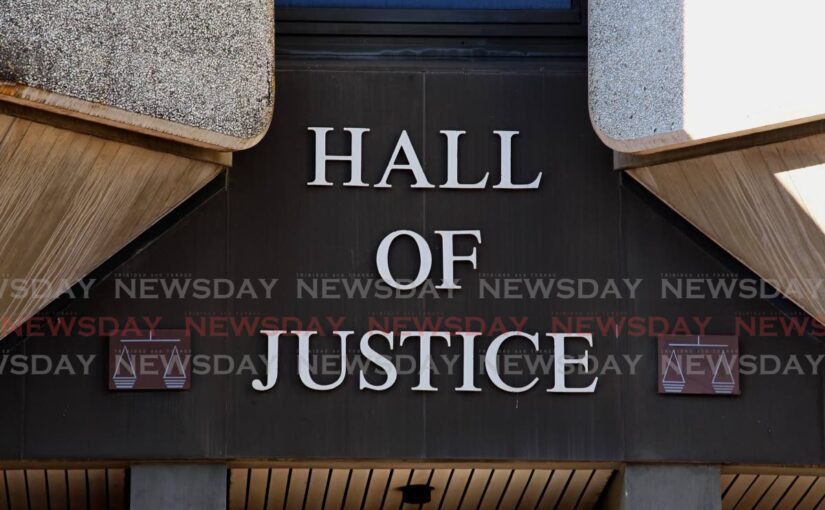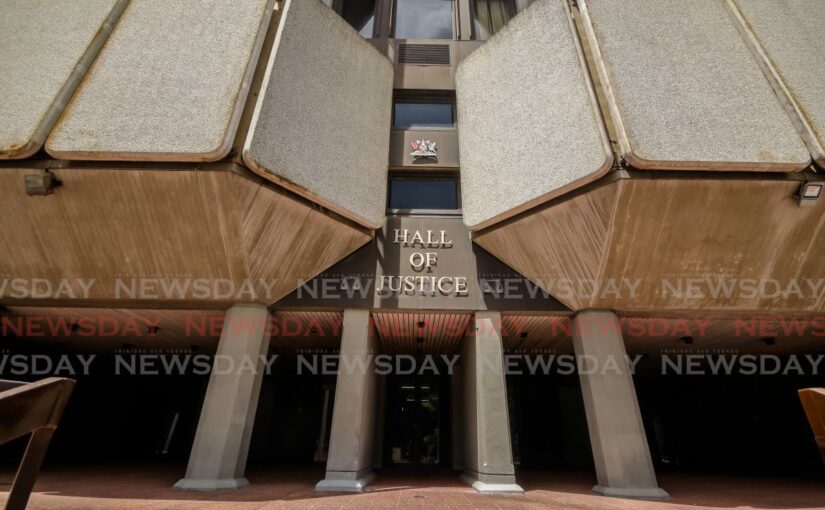TWO police officers charged with conspiracy to pervert the course of public justice in relation to an alleged 2019 offence were discharged by a...
Vous n'êtes pas connecté
Rubriques :
 - NEWSDAY.CO.TT - A la Une - 25/Jul 13:58
- NEWSDAY.CO.TT - A la Une - 25/Jul 13:58
Progress too fast leaves unprepared behind
THE EDITOR: Recent legislative reforms aimed at accelerating criminal proceedings have inadvertently exposed a critical weakness: a prosecution machinery ill-equipped to keep pace. The result is a growing crisis where procedural missteps are leading to the dismissal of serious criminal cases, eroding public trust and denying victims their day in court. The implementation of the Administration of Justice (Indictable Proceedings) Act, No 20 of 2011 as amended and the Criminal Procedure Rules 2023 marked a pivotal shift from the cumbersome “old-style” preliminary enquiry system. The new framework empowers masters of the High Court to manage cases through strict timelines and sufficiency hearings, designed to determine whether there is sufficient evidence to proceed to trial on an indictable offence before a High Court judge. However, the effectiveness of this system hinges on the readiness of all parties. The prosecution, often citing chronic staff shortages and a lack of resources, has consistently failed to meet court-mandated deadlines for filing essential documents like indictments and witness statements. The consequences of this unpreparedness are stark and alarming. Masters are increasingly using their authority under the rules to discharge the accused when the prosecution fails to comply with court orders. Recent examples highlight the trend: • November 2024: Nine police officers in two separate but connected high-profile extortion cases were discharged by Master Sarah de Silva, who cited prosecutorial missteps and failure to adhere to court directives. • December 2024: A man charged with robbery was discharged by Master Cazabon following repeated and lengthy delays by the state in prosecuting the case. • May 2025: A man facing double murder charges was discharged by Master Whitney Franklin after prosecutors failed to produce key witness evidence, even after being granted extensions. That same month, two individuals facing six charges, including shooting with intent, were discharged by Master Sookraj-Goswami. • June 2025: Cases involving double wounding and fraud were dismissed by Masters Franklin and Adia Mohammed, respectively, after the state failed to present admissible evidence or advance the prosecution despite multiple extensions. • July 2025: Two men on gang-related charges were discharged by Master Delicia Bethelmy when the state failed to file the required evidence and indictment within the stipulated deadline. Shortly after, Master Sookraj-Goswami discharged three police officers accused of misconduct in public office after the prosecution failed to proceed with its case on multiple court dates. These dismissals are not judgements on the merits of the case but are a direct result of the prosecution’s failure to perform its duties. Each dismissal signifies a profound failure of the justice system with far-reaching consequences: victims and witnesses are demoralised, public safety is compromised, resources are wasted, significant time and taxpayer money invested in investigations are squandered, and public trust is eroded. The situation is complicated by legal ambiguity. A discharge is not an acquittal, meaning the prosecution can technically refile charges. However, this practice raises valid concerns about potential abuse of process, as it could allow the prosecution to circumvent deadlines without consequence. Furthermore, the entire framework faces a crucial test. In October 2024, the Court of Appeal reserved its ruling in a procedural appeal wherein a man on a series of sexual offences challenged the decision by a master to adjourn his sufficiency hearing after the state failed to abide by the court’s directions for the filing of key evidence against him. This eagerly awaited decision will either reinforce the new standards of efficiency or grant a “free pass” to a struggling prosecution, potentially undermining the core purpose of the reforms. The question is no longer if action is needed, but what it will be. Will the prosecution receive the resources and management required to meet the demands of a modern justice system? The integrity of the nation’s administration of justice hangs in the balance. BRENT D WINTER attorney The post Progress too fast leaves unprepared behind appeared first on Trinidad and Tobago Newsday.
Articles similaires
Ex-Sort head cleared of misbehaviour charges
Former Special Operations Response Team head Insp of Police Mark Hernandez was cleared of a charge of misbehaviour in public office after a High...
Ex-Sort head cleared of misbehaviour charges
Former Special Operations Response Team head Insp of Police Mark Hernandez was cleared of a charge of misbehaviour in public office after a High...
A good day for Jack Warner
LONG has been this country’s love affair with Jack Warner. And troubled. Mr Warner, 82, has been pariah and patriot, hero and villain, kingmaker...
A good day for Jack Warner
LONG has been this country’s love affair with Jack Warner. And troubled. Mr Warner, 82, has been pariah and patriot, hero and villain, kingmaker...
'Stunning error': Records show LA protest charges collapsed because of agents' lies
Documents obtained by The Guardian and reported on Monday further detail how the Trump Justice Department has been forced to drop cases against...
'Stunning error': Records show LA protest charges collapsed because of agents' lies
Documents obtained by The Guardian and reported on Monday further detail how the Trump Justice Department has been forced to drop cases against...
AG Jeremie orders inquiry in Jack Warner’s extradition case
THE fate of Jack Warner’s extradition challenge now rests with Attorney General John Jeremie, SC, who has launched an investigation into the...
Russia: Old Catholic Priest Fined For Anti-War Sermons – Analysis
By Victoria Arnold An Old Catholic priest has become the latest religious figure to be prosecuted for preaching against Russia's war in Ukraine. A...
Obama Colluded With The Surveillance State Against Trump – OpEd
It is true that Barack Obama used the surveillance state apparatus in an effort to undermine the first Donald Trump administration with the...
Les derniers communiqués
-
Aucun élément





